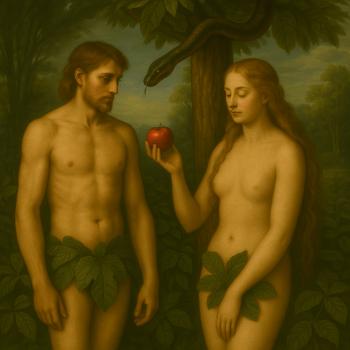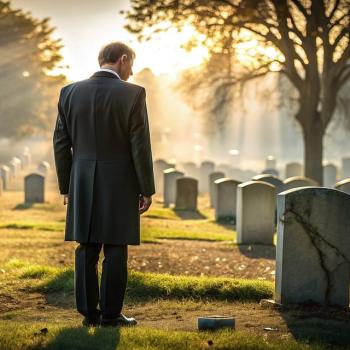The Journey is the Destination
One day, my wife and I watched old home movies with our son and daughter and son-in-law. The camera panned around a house that we no longer own, in a neighborhood where we no longer live, filled with possessions that we no longer have, and rested on some beloved relatives and some cherished pets who are no longer with us.
The camera found my pretty wife of seven years and my sweet children, ages five and two. Soon, it found me, a 29-year-old man at the beginning of a 25-year career in investment banking. So, that’s how I looked before I gained 50 pounds and lost a million dollars, I thought.
Then, I missed my in-laws and my dog and my house and my neighborhood and my stuff, and I missed my pretty wife and my sweet children, and I missed my strong, young self.
“I am as old now as you were then,” my daughter said wistfully.

The Circle of Life
I leaned into the TV, intently staring at my 29-year-old self, as he leaned into the camera, intently staring at me, or so it seemed.
Suddenly, I felt the piercing gaze of my 29-year-old self, as he scanned my surroundings. He saw my house and my neighborhood and my stuff, and he saw my wife of 32 years and my children, now aged 29 and 26. He saw my son-in-law, soon to be a father himself.
Somehow, he knew that my life had worked out well. He knew that I had lost the 50 pounds and recovered the million dollars, just as he knew that we were retired, that we were healthy, and that our children were established.
He knew that I spent my time driving veterans to the VA clinic and helping people with their taxes and playing with sick children at a children’s hospital and teaching writing at a library and volunteering for the Red Cross. A good life, he thought. No, a great life.
Then he wanted my life and my pretty wife and my successful children and my old, steady self—and I knew that he would, since he was always in a hurry to find the future.
“Hug your in-laws, kiss your wife, love your kids, play with your dog,” I said to my young self. “You are in a hurry. Savor the moment. Take your time. The journey is the destination.”
He nodded silently, as the camera panned away slowly.
If you want to stay up to date on the latest from You Might Be Right, simply subscribe with your email.














